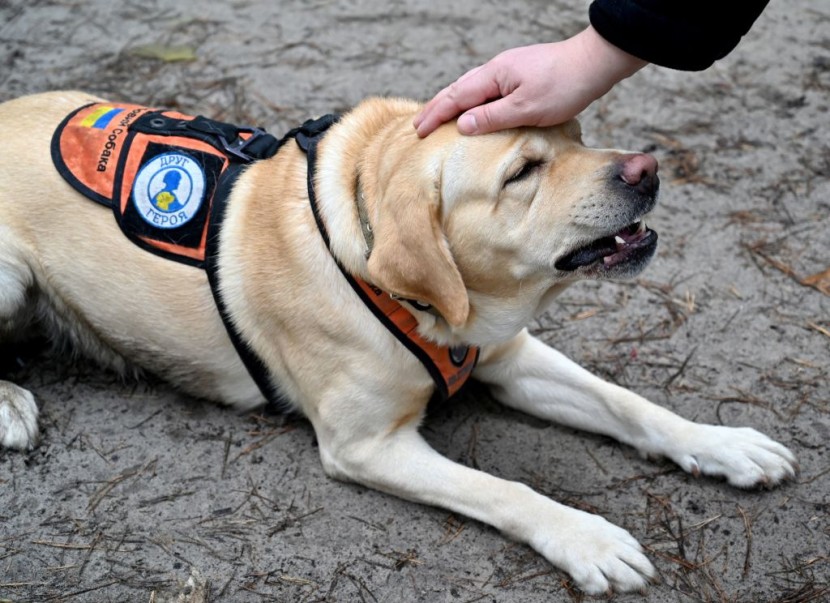
Two 14-month Labradors have been roaming five schools in Massachusetts to help detect COVID-19 within the premises.
According to reports, Huntah and Duke have been undergoing training similar to narcotic dogs. But unlike the latter, they are not trained to detect drugs.
Jonathan Darling explains how dogs can detect COVID-19
Jonathan Darling, the Bristol County Sheriff Office public information officer, detailed how the two adorable dogs were trained to detect COVID-19.
He said that Huntah and Duke's trainers took a mask worn by a person who tested positive for COVID-19 and then used a UV light to kill the virus. The mask was then cut into small pieces and placed in a plastic bag to imprint its scent on the dogs.
Since COVID-19 causes metabolic changes, which trigger a specific odor, the two dogs are then able to detect the virus.
However, Lawrence Young, a virologist at Warwick Medical School in the United Kingdom, said that it's still too early to determine whether the COVID-19 sniffing dogs can be used to fight the pandemic in general.
School superintendent calls the dogs' visit a win-win
But even if this is the case, school superintendent Rick Medeiros is confident that the two dogs, which have been brought into the five schools within his district, have been of great help to everyone on the campuses.
"Our number one priority is to safely keep our students and staff in school for in-person learning and we believe this was just one more mitigation strategy to help us reach that goal," he said via CNN.
Read Also: COVID-19 Around the World: How Different Countries Are Dealing With Omicron Surge in January 2022
Medeiros also assured parents and teachers that the dogs wouldn't disrupt the children's learning since Huntah and Duke only come to school once a week.
The teachers do not also ask their students to line up so that the dogs can sniff them and detect COVID-19. Instead, the dogs enter vacant rooms like cafeterias and gymnasiums to detect the scent they were trained to look for.
Other school districts are interested in hiring dogs to detect COVID-19
Darling, meanwhile, confirmed that other school districts had already reached out to him to ask about Huntah and Duke. If Fairhaven and Norton also employ the same strategy, the dogs would have to visit 15 schools weekly.
The officer also revealed that Huntah and Duke enjoy their work. But when they aren't tasked to detect COVID-19 in schools, they are like other dogs that love to give kisses.
He also said that the students and staff love seeing the dogs whenever they are on campus. But according to NBC Boston, some individuals are opposed to having dogs in the school.
Norton Superintendent Joseph Baeta said that the dogs could scare some kids.
Study shows dogs are effective COVID-19 detectors
Meanwhile, the Forensic Center at Florida International University conducted a study on dogs detecting COVID-19. They used data from another research that was conducted in 1993.
The study found that dogs are more than 90 percent reliable in detecting COVID-19 odors, with a very low false positivity rate, according to CBS News.
Related Article: 3 Fugitives Arrested, Detained Without Bond In Connecticut Following an Investigation Into Suspected Animal Cruelty; 7 Abused Pit Bulls Rescued
© 2026 HNGN, All rights reserved. Do not reproduce without permission.








